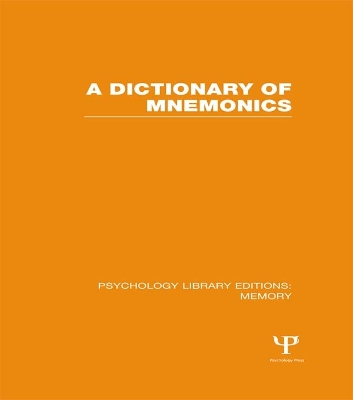Psychology Library Editions: Memory
2 total works
Memory is one of the core areas of academic research in cognitive psychology. Psychology Library Editions: Memory brings together a series of previously out-of-print titles, available as a 27-volume set or as individual volumes. The authors come from diverse backgrounds and many of them are now leading experts in their fields. The majority of titles were originally published in the 1970s and 1980s and reflect early research in a number of key areas. The volumes cover topics such as memory development in children; memory and aging; memory and thinking; memory and language; working memory; and memory disorders, to name but a few. This is a great opportunity to obtain a valuable resource tracing the development of a major field of psychology.
The Greeks invented them. All manner of people in the European Middle Ages used them, often with creative and brilliant effect. Victorian schoolmasters in England almost buried them and the pupils who had to cram facts parrot-fashion. Originally published in 1972, this title brought mnemonics back into focus with a new collection designed for current use.
A mnemonic is anything that gets your memory working. When in the month does the third quarter-day fall? What order have the planets from the sun? Are you sure about the kings and queens of England? People nowadays have so much to remember that even those quite happy with √2 = 1.414 may prefer to chant ‘I wish I know the root of two’ and remind themselves in that way.
Although some entries are very much of their time, this title reminds us that mnemonics are still a useful tool in a world where technology means most people feel they have little need to remember.

